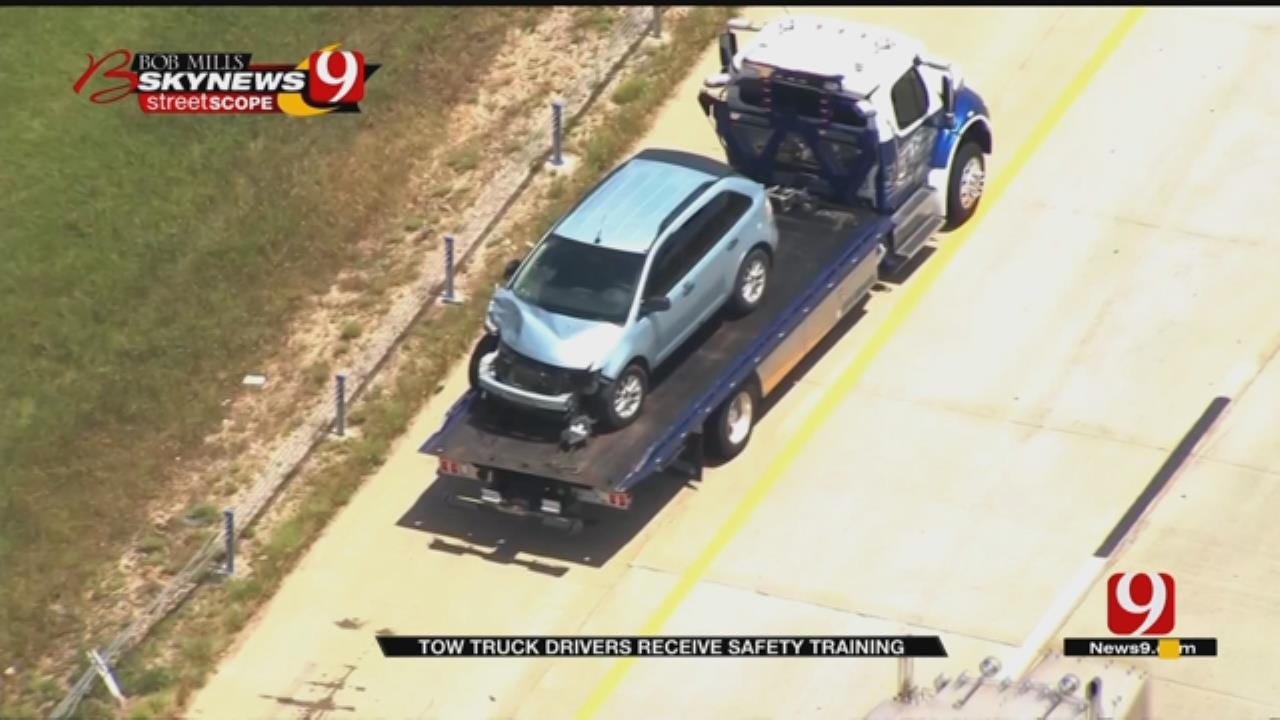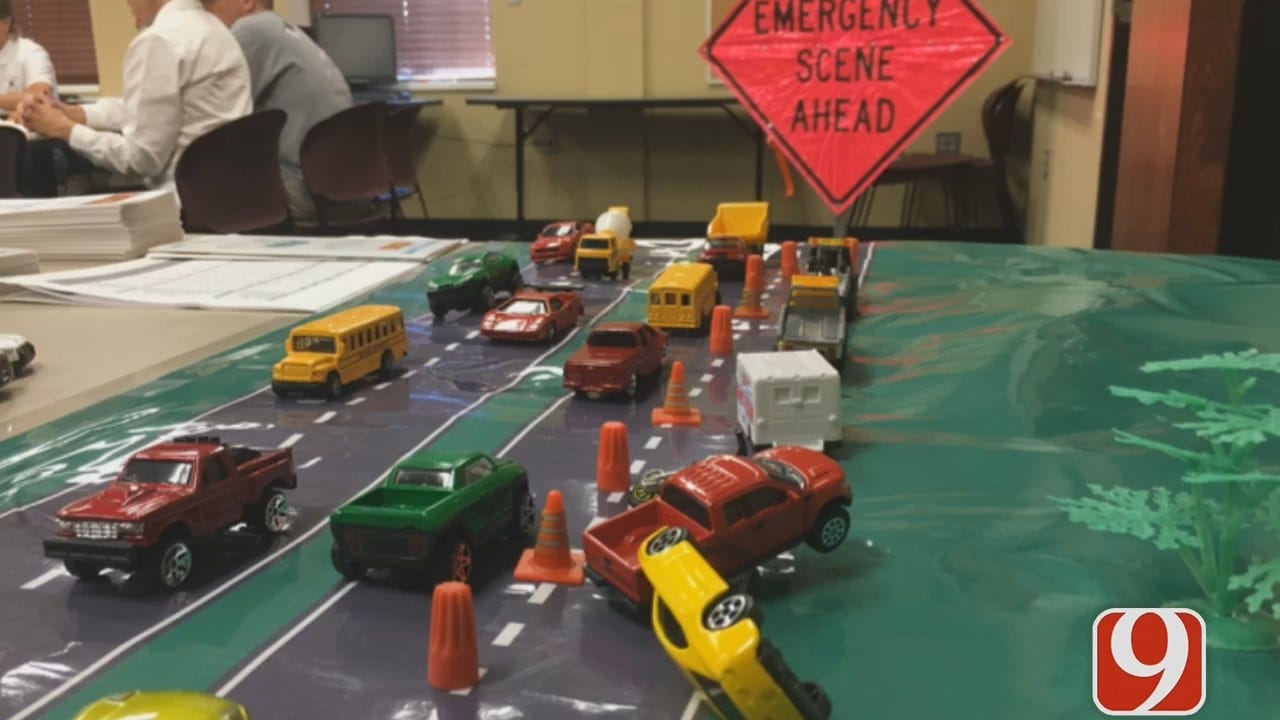New Training For Oklahoma Tow Truck Drivers May Help Save Lives
<p>As of Friday, all tow truck drivers in Oklahoma are now required to go through Traffic Incident Management training before they can receive their state certification.</p>Friday, September 1st 2017, 1:05 pm
Every year deadly accidents happen at the scene of other accidents, many caused by careless drivers. Oklahoma's emergency crews are trained to help prevent these secondary crashes, but tow truck drivers are now joining the conversation.
OKTIM.org (Oklahoma Traffic Incident Management) reports that nationally each year about 10 law enforcement officers and six firefighters are killed on the side of the road, but more than 60 tow truck drivers suffer the same fate. Starting Sept. 1, though, those wrecker operators will be required to know how to properly manage a scene.
“The way we’ve always done it doesn’t work. That’s what’s getting us killed,” says Bryan Albrecht, who owns Cavin Wrecker Service and serves as vice president of training for the Oklahoma Wreckers Association.
Albrecht is well aware of the dangers of working on the roadside. Two years ago he faced his own close call with a drunk driver. “Fortunately for me I heard him coming and was able to get about three steps away before impact, so it was a pretty scary moment,” he recalls.
He walked away safely, but many others do not. This year the Spirit Ride came through Oklahoma to raise awareness about Move Over laws, which include tow truck drivers.
“Red and blue lights are out there for a reason,” says OHP trooper Lt. James Loftis, who has lost friends in avoidable crashes. “We want to get your attention. We want to get you to slow down and move over.”
Traffic Incident Management System training combats the dangers of careless drivers by positioning vehicles and signs strategically to protect those on the scene, but before now, not everyone was on the same page. “With that lack of communication within each discipline that’s out there, that slows things down, so therefore we’re all more targets on the roadway,” explains Roger Straka, a master TIMS instructor at Eastern Oklahoma County Career Tech.
Requiring tow truck drivers to take the class will not only help clear scenes faster, but also keep responders as safe as possible. “We can’t change the motoring public,” says Albrecht. “We can’t change their texting habits. We can’t change their driving habits, so the only way we can protect ourselves is through training and trying to change the way we do things.”
Right now, state agencies are also discussing expanding this training to the general public.
More Like This
September 1st, 2017
January 2nd, 2025
September 29th, 2024
Top Headlines
April 18th, 2025
April 18th, 2025
April 18th, 2025
April 18th, 2025










